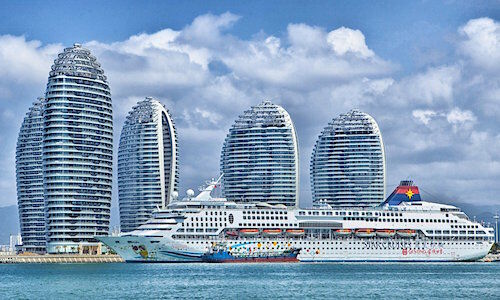Beijing Attempts to Morph Hainan Into Free Trade Hub
Beijing unveiled plans to turn China's southernmost island province Hainan into a free trade hub, a move viewed by many as a hedge to potentially replace Hong Kong.
The outlined plan includes many of similar policy features that have benefited Hong Kong including a low income tax rate, an easier investment environment as well as freedoms in trade, investment and capital flows.
Beijing intends to transform Hainan into a regional trade, shopping and shipping center with «strong international influence» by 2035. According to a government statement, the project has been «planned, arranged and promoted by General Secretary Xi Jinping personally».
This follows the decision by the U.S. administration to remove Hong Kong’s special trading status which would subject the city’s exports to the same U.S. tariffs as the mainland, threatening its port status and tax-friendly trading activities.
Beijing’s Efforts
In terms of pure scale, Hainan physically outsizes Hong Kong by ten-fold with an area totaling 35,000 square kilometers alongside a population of 9.5 million. The project is also integrating input via delegations that had been sent to Hong Kong, Singapore and Dubai since 2018 to learn about «free trade» know-how.
But task of creating a truly competitive, international financial center relies on more than just hard factors like infrastructure and capital with soft factors – talent, culture and diversity, for example – that tend to be most difficult to replicate. There were reports as recent as late 2019 that claim that Beijing officials were looking at Macau as an alternative financial hub.
«The financial industry used to be an idea that we reserved for Hong Kong. We used to give all the favorable policies to Hong Kong,» an unnamed Chinese official reportedly said in December 2019. «But now we want to diversify it».






















